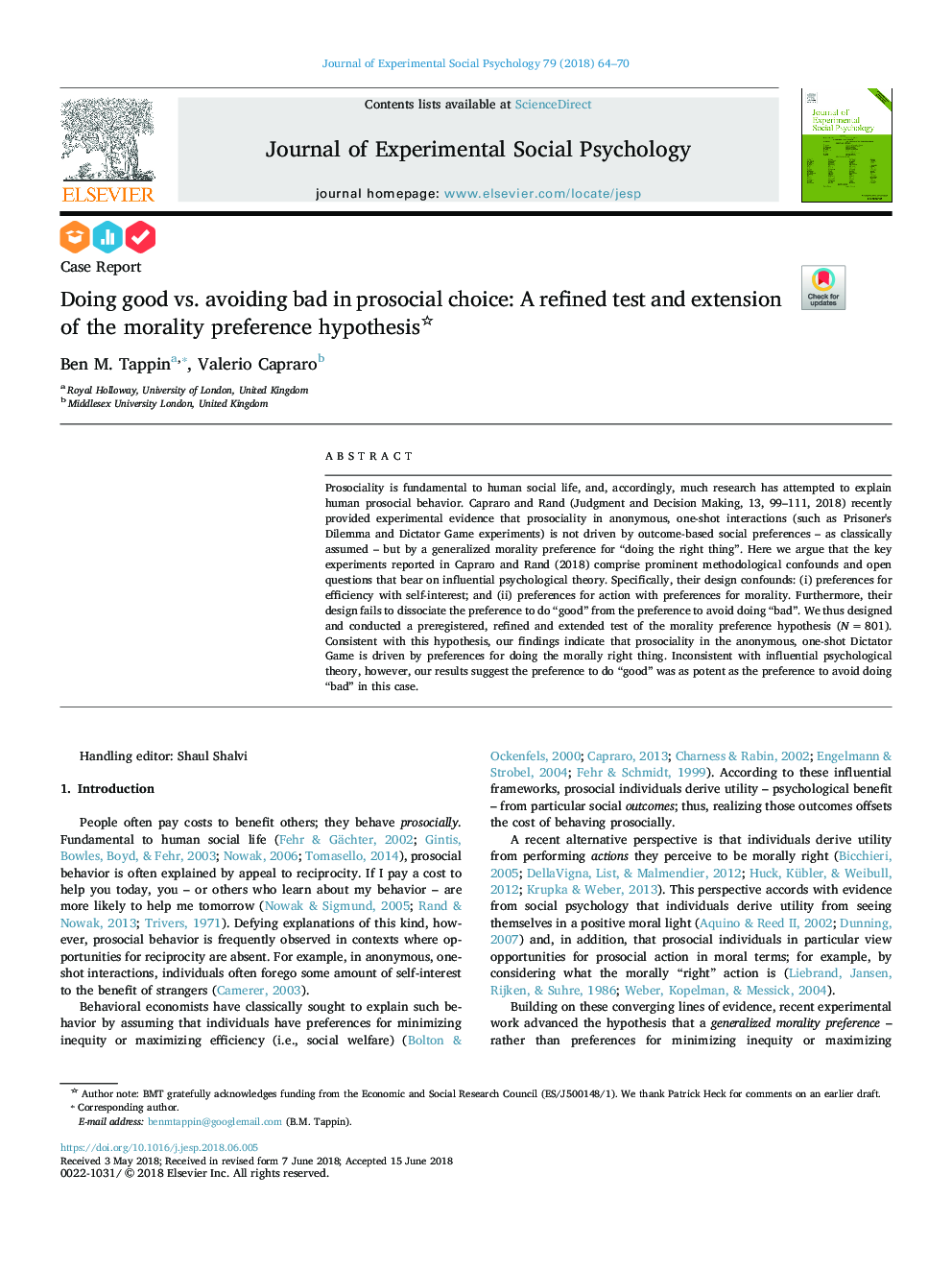| کد مقاله | کد نشریه | سال انتشار | مقاله انگلیسی | نسخه تمام متن |
|---|---|---|---|---|
| 7323990 | 1475844 | 2018 | 7 صفحه PDF | دانلود رایگان |
عنوان انگلیسی مقاله ISI
Doing good vs. avoiding bad in prosocial choice: A refined test and extension of the morality preference hypothesis
ترجمه فارسی عنوان
انجام خوب در مقابل اجتناب از بدی در انتخاب پروسا: تست تصفیه شده و گسترش اصل فرضیه اخلاقی
دانلود مقاله + سفارش ترجمه
دانلود مقاله ISI انگلیسی
رایگان برای ایرانیان
موضوعات مرتبط
علوم زیستی و بیوفناوری
علم عصب شناسی
علوم اعصاب رفتاری
چکیده انگلیسی
Prosociality is fundamental to human social life, and, accordingly, much research has attempted to explain human prosocial behavior. Capraro and Rand (Judgment and Decision Making, 13, 99-111, 2018) recently provided experimental evidence that prosociality in anonymous, one-shot interactions (such as Prisoner's Dilemma and Dictator Game experiments) is not driven by outcome-based social preferences - as classically assumed - but by a generalized morality preference for “doing the right thing”. Here we argue that the key experiments reported in Capraro and Rand (2018) comprise prominent methodological confounds and open questions that bear on influential psychological theory. Specifically, their design confounds: (i) preferences for efficiency with self-interest; and (ii) preferences for action with preferences for morality. Furthermore, their design fails to dissociate the preference to do “good” from the preference to avoid doing “bad”. We thus designed and conducted a preregistered, refined and extended test of the morality preference hypothesis (Nâ¯=â¯801). Consistent with this hypothesis, our findings indicate that prosociality in the anonymous, one-shot Dictator Game is driven by preferences for doing the morally right thing. Inconsistent with influential psychological theory, however, our results suggest the preference to do “good” was as potent as the preference to avoid doing “bad” in this case.
ناشر
Database: Elsevier - ScienceDirect (ساینس دایرکت)
Journal: Journal of Experimental Social Psychology - Volume 79, November 2018, Pages 64-70
Journal: Journal of Experimental Social Psychology - Volume 79, November 2018, Pages 64-70
نویسندگان
Ben M. Tappin, Valerio Capraro,
